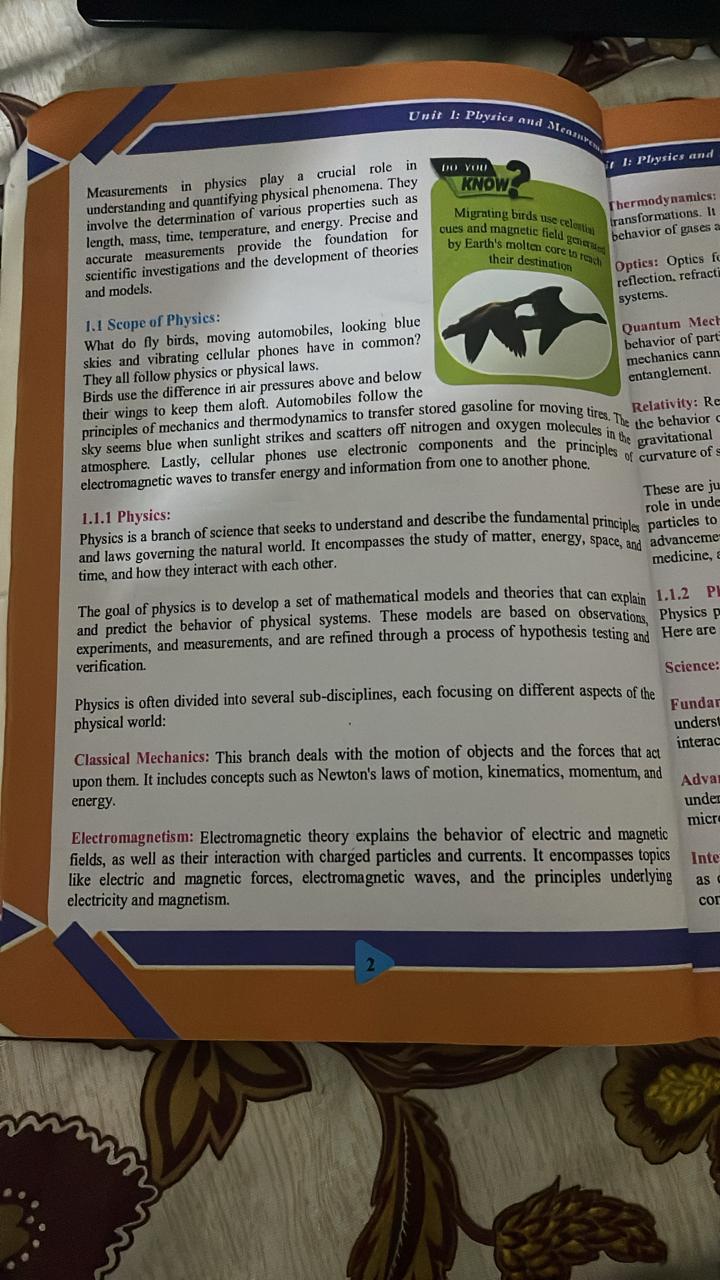What are the principles of measurements in physics and how do they relate to physical phenomena?

Understand the Problem
The question is asking for a summary or understanding of the principles of measurements in physics, particularly as they relate to various physical phenomena and the scope of physics.
Answer
Determining physical quantities like length, mass, time, and energy to explain phenomena, validate theories, and develop models.
The principles of measurements in physics involve determining various physical quantities such as length, mass, time, and energy. Accurate measurements are fundamental in explaining physical phenomena, validating theories, and developing models in physics.
Answer for screen readers
The principles of measurements in physics involve determining various physical quantities such as length, mass, time, and energy. Accurate measurements are fundamental in explaining physical phenomena, validating theories, and developing models in physics.
More Information
Measurements in physics provide a standardized way to describe and quantify the natural world, allowing for predictions, hypothesis testing, and experimental verification.
Tips
A common mistake is neglecting the importance of precision and accuracy in measurements, which leads to less reliable data and conclusions.
Sources
- 1: Units and Measurement - Physics LibreTexts - phys.libretexts.org
- Physical Quantities and Units - Courses.lumenlearning.com - courses.lumenlearning.com
- Understanding Measurement in Light of Its Origins - PMC - NCBI - ncbi.nlm.nih.gov
AI-generated content may contain errors. Please verify critical information